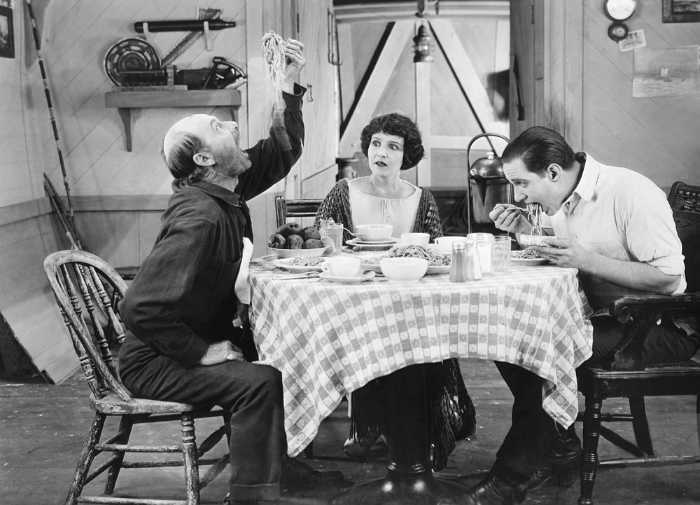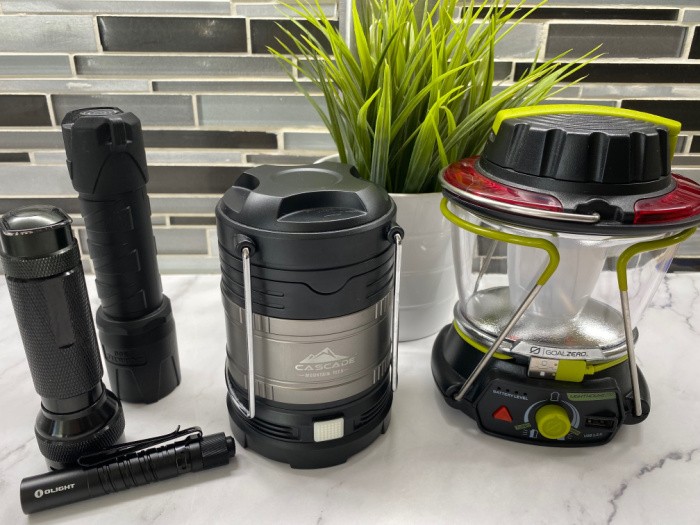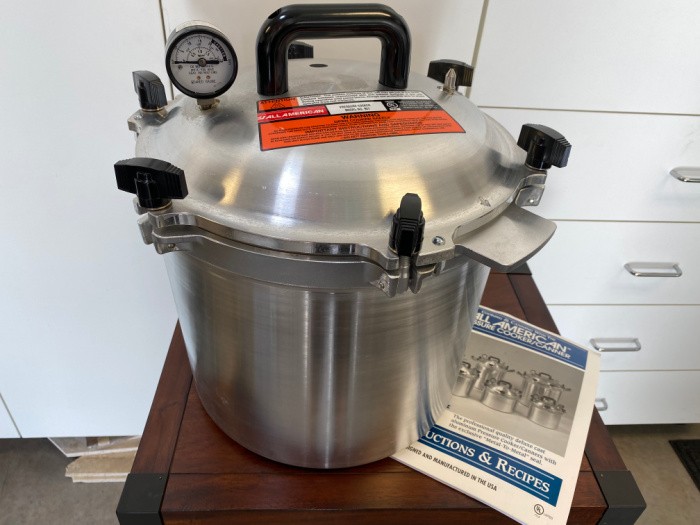What You Need To Know When You Buy A Home
When you are thinking about buying a home there are some things you need to know before you get started. I used to own a mortgage company and I’m also a realtor so I have a few tips for you. Both of my licenses are inactive at the moment but I keep up to date on my continuing education classes. I can activate my licenses at any time. I owned a mortgage company for about 15 years and was actively selling and listing homes for over ten years.
Before you get started looking for a home, you need to get your affairs in order. I know that house you just saw around the corner is darling and you want it. Today. Well, you need to be prepared before you start looking for a home. Before you start looking online or cruising neighborhoods for the perfect home, you need a plan.
When You Buy A Home
- Save for a down payment/closing costs (or ask the seller to pay the closing costs-when the offer is submitted)
- Get pre-approved for a loan
- Find a real estate agent
- Start looking for a home
- Submit an offer on a home (make a copy of the earnest money check), your loan officer will need it
- Real estate agent will order inspection
- Loan officer will order appraisal (required to determine value) and termite inspection if needed
- Close on your home
Home Loans Available
Here are few types of loans, your loan officer will explain the pros and cons to each. Your loan officer will get your VA Certificate of Eligibility if you qualify for a VA loan.
- FHA as of today requires a 3-1/2 percent down payment, this loan has PMI (private mortgage insurance)
- VA government insured loans requires zero down, this loan has a VA funding fee but no PMI
- Conventional loans are the most popular with 5, 10, 15 and 20% or more down payment (under 20% down will have PMI)
- ARMS-adjustable rate mortgages, this means the rate is adjustable, the rate will go up typically
- Rural Housing is 100% financing and has PMI
- Loans available can be 10, 15, 30 and 40-year loans
Good Credit for A Home Purchase
This is when you need to be prepared to have good credit when you apply for a home loan. Your FICO credit score is critical because it will determine your interest rate. The credit scores you have access to are different than the ones we use as loan officers. We pull three credit bureaus, not just one like the credit bureaus we have access to check on the Internet.
Please do not apply for unsecured credit, car loans, furniture stores or have your credit pulled until you know the loan officer YOU really want to use. If you have applied for credit in the last 90 days the lender will wonder if you are out buying “stuff.” Right before you close on your loan they pull credit AGAIN and check to make sure your ratios are acceptable to the lender.
The lender will also call your employer to make sure you are still employed the day the loan is funded. In other words, don’t go shopping for that big TV, furniture, car, or get 10% off at the checkout counter at your local store if you open a credit card to save 20%. No, no, no. If you want a home you must be careful with credit inquiries. Please do not quit your job, yes I have seen this happen. One of my loan officers had a buyer quit his job a week before he was supposed to close on his mortgage loan. Of course, that loan didn’t close.
Please pay your rent on time, the loan officer will send out a rent verification letter to your landlord. You may not have any credit, but this is a great way to show you pay your rent on time, therefore you have great credit. If you have a car loan that is a better loan than unsecured debt. The reason being the loan is a “closed-ended” loan. It will eventually be paid off. If the car is within so many months of being paid off, the lender may not count the debt because it will go away.
If you are wondering about student loans, yes they will be counted depending how long they are deferred. Yes, loan rules will change so be aware. Your loan officer if she or he has the experience, they will know the changes.
Paperwork for Home Loan
Here are a few items you will need to take to your loan officer:
- Start gathering bank statements (three months-every page)
- IRA’s or 401K statements, stock statements (three months worth)
- Paystubs (30 days)
- W-2s and 1099s (2 years)
- Personal Tax Returns-every page (2 years)
- Business Tax Returns if applicable (2 years)
- Overtime is typically averaged for two years
- Self-employment income will be averaged over two years
- Driver Licenses
- Social Security Cards
Expectations of Your Home
Please remember a few things, never buy the biggest most expensive home in the neighborhood you are looking at because it may not appreciate enough to help you buy your next home. If the prices are $200,000.00 to $300,000.00 typically the next wave of buyers will be looking at the lower-priced homes and you’ll have an easier time selling when the time comes.
I suggest you and your partner, if you are buying a home together, write down the expectations you want with your new home before you go looking. For instance, 2 bedrooms, 3 bedrooms, how many bathrooms, yard size, carport, garage size, the distance of the commute to work, to name a few things. Ask the realtor if the home has an HOA, this will really impact your budget and parking that trailer on the side of your home. An HOA, or homeowners association, will have a monthly fee depending on the common areas, whether they mow your lawn, replace shrubs, etc. You may have to have the color of your front door, entryway lights, home color, and garage color approved by the HOA if you plan to make any changes after you move in.
If your home is in a flood zone, that will add a monthly fee if you can even get flood insurance. If you can see a creek, river, or culvert near the home, it may be in a flood zone. Be wary of vacant property adjoining the home you are looking at because that may become a commercial building, shopping strip mall, or apartment looking directly into your backyard. I always pointed that out to my buyers because you don’t know what is zoned for that plot of land today, and it could change next year.
If you walk into a home with purple walls (my favorite color), remember you can paint the walls, paint is pretty cheap, so don’t get too discouraged with some features you may want to change. On the other hand, look at the floorplan, the size of the rooms, and the moldings. The ceilings (for cracks-settling), the cabinets, etc. since some repairs could be more expensive. Things like the lights can be replaced later as desired. Ask when the furnace/AC was serviced, I usually did that as a realtor. I look at the windows, the window screens, and the roof (not with a ladder) the inspector will do that.
Check the bathroom for caulking around the tubs and showers, has it been maintained? I’m a clean freak so I look for clean homes. If the home is immaculate then the house has probably been maintained properly. Remember, once you buy, you no longer have a landlord to replace the dishwasher, water heater, etc. As a realtor, I always checked the date on the water heater, hoping it showed the date it was installed.
Ask how old the furnace and the AC are, they may be the original ones when the home was built. Remember, an inspector will check some of this stuff, but it can still break down a month later. As a realtor, I always bought a home warranty for my buyers. Trust me it was used twice, once on Christmas Eve when the furnace went out and another buyer when the AC went out. Those were the most expensive ones that were replaced, whew, it saved my clients $4,000-$5,000 each.
Choosing a Realtor and Home Mortgage Loan Officer
Oh my gosh, these are the most important people you will use to help you find your dream home. I know you may have a cousin who has a best friend with a twin sister that does real estate every once in a while. STOP. I can hear you say, but I need to help her, I get it. But this is the biggest purchase you will make for your family. You need someone who knows the area, has extensive expertise, and is looking out for you, not their pocketbook.
They may not know a commercial building is going in on that lot right behind the house you are looking to buy. An experienced realtor with integrity will be looking for a home’s flaws or positive features. When I owned my mortgage company before I took the classes to be a realtor, I knew the good realtors and the not-so-good ones. You want a realtor that is looking out for your best interest.
Typically a really good realtor knows the best loan officers. They may not be at a bank. They may be a mortgage broker like I was or a direct lender. Check references and ratings. Reputable title companies know the best realtors and loan officers. Trust me, if you have a moving van loaded, that loan better close on time.
Home Moving Expenses
Sometimes realtors provide moving trucks to help their buyers. You can hire a moving company, but it may be more expensive than you planned. Get a bid in writing if that is your only option, and check references. Just expect several hundred dollars to rent a truck if you are moving clear across town. Moving a few items in a personal truck is expensive and annoying to people helping you. You can buy used boxes with used paper for packing online or at moving companies. We bought and sold our boxes online before and after we moved once.
Here is a post I wrote on maintaining a home. Maintain Your House by Linda
Changing the Home Locks
Please have your home locks changed once you move into your home. I always gave my buyers a $300.00 gift card to a reputable locksmith so they could have new keys made or the locks replaced. It’s all about safety.
Please remember, buying a home is the biggest and most important purchase your family will make. Take your time and enjoy that home with your family. It’s all about the memories.
My favorite things:
Copyright picture: AdobeStock_64479058 by Andy Dean























whats this got to do with prepping? looks like spam to me.
Hi Lonewolf, no this post is not spam. Linda
this article is on prepperwebsite but I fail to see any connection with prepping, sorry.
Hi Lonewolf, I believe people may need help or tools to purchase a home to use for their food storage and prepping/emergency supplies. Not everyone is financially savvy. No worries, I felt it was important to share my knowledge on how to buy a home. Have a great day! Linda
Great post Linda. Some excellent points here that people just do not always consider. Having said that we were not the smartest when we bought this house but we negotiated well and got a fair price. Now it is paid off and we are keeping up the maintenance. Good feeling though to own you home.
Hi Rita, you are awesome to tell me this! You rock!!! Great comment, Linda
Buying a house that is just decorated badly, is a wonderful bargain usually. Paint is cheap, that is for sure. Pay ahead on your mortgage, you will save thousands.
Hi Janet, thanks for your great comment. That was my point today to make people aware that they will pay thousands less in interest. Paint is cheap, with a little elbow grease we can make an unsightly home into our colors and clean it until it looks like new! AND save thousands of dollars! Love your comments as always! Linda
So many things missing from this: is the home built on a slab, is it a corner lot with large lot but no backyard privacy, what kind and how many trees, how old is the roof, how old is the HVAC system, is natural gas available, are the electrical and communication utilities on utility poles and if so in your yard, is neighborhood well kept, are the next door neighbors slobs with boats in the yard etc, is this a through street with lots of traffic, crime incidents locally, air traffic pattern, and a bunch more.
Hi Tom, thank you for your comment. I wrote as many as I could without overwhelming my readers. I could write a book but that was not my intention. I even knock on neighbors doors to meet them before an offer is made on a home. I could go on and on. Linda
When I bought my house 17 years ago, I wish I noticed a few things. From previous houses I knew to look inside the toilet tanks to see what collected there from the water. What I missed this time around was the condition of the street out my front door. It was originally brick paved, but it was black-topped over. There were many patches to the blacktop. What creates this? The area of my house was in a “wet spot” on a somewhat flat spot on slopping terrain. The annual freezing and thawing with car traffic on the street created all the pot holes. What does this have to do with my house? The foundation is cinder-block – A weak, porous, cement block. Living in a wet spot created water seepage in the basement, which was camoflauged well. 17 years later it has become a major problem. I cannot dig 8′ down the perrimeter of the house and make it waterproof. That would mean I have to replace the blacktop driveway too. I have mold.
Hi Benue, oh my goodness, this is terrible. Mark and I once owned a home that was built incorrectly on a slope, what a mess. We had to have drains dug down to collect the water that was flooding our basement. Our builder had to dig down and slather waterproof stuff (that did not work). Some molds are extremely dangerous. I used to live in Salt Lake City, Utah, that has a lot of snow in the winter and the roads are cracked with potholes on almost every street. It’s so bad on our cars and safety of people walking on them. Now, I live in Southern Utah and the dirt slides off some of the mountains and the city is always repairing the roads. Is it mother nature or poor planning on the government employees? We will never know. I’m very disappointed with the quality of the home I own right now. We bought this house in 2005, biggest mistake we ever made. Somethings you cannot see even with an inspection. It’s an outright crime how this house was built. Well, actually the entire neighborhood. You are not alone, we have zero recourse if you try and question the permits approved when the house was built. I tried. The city will never admit mistakes. Linda
Great article. I was looking for something just like this. Most articles in how to buy a house are extremely bias and not honest because the seller or realtor always look for an angle to increase your payments. I just wanted to add my two cents. The section about ‘credit scores and reports’ you inferred that a good credit score will help to reduce the interest rate or give you some indirect discounts. From experience that is not true (at least if you are a none-white person). When i was on the market for a house in the range of $200k to $300, I was told that my credit score/report did not lower anything; they told me that a good credit/report would only make the seller (and realtor) more friendly towards you buying their home. (what a load of s-). FYI: when i was searching for a house my car was totally paid, all utility bills were always paid one week earlier that the day they were due, I had no loans, no new purchases. I was not married – and my scores/credit report from Experian, TransUnion, Equifax were 815, 820 and 822. I was an officer in the United State Air Force and I was able to saved, at that time over $350,000. Yet the seller and realtor refuse to sell me the house. They did not explain to me why was my credit score and report not to standards. – just saying. I end up buying a New-built. My point… credit reports are good if the seller acknowledged them. Is just like my mom used to say – “The truth is the truth ONLY when the other person choose to acknowledged it”.
Hi, Angel, were those scores you pulled or the loan officer, they can differ. If you were a veteran with zero down you could have applied for a VA loan if you qualified for one. The law is this, the lender must give you a sheet with your credit scores within so many days. The seller should never see your credit scores. EVER. If I’m reading what you wrote correctly, was your down payment $350,000.00? I’m a little confused, you mentioned looking at houses that were $200-300K. The realtor should have been reported to the Board of Realtors for that state. It’s illegal to refuse to sell a home to anyone if you qualify. Your credit score does indeed decide the rate you will receive and the percent down required for the loan amount at least in Utah. I’m licensed nationally so it should be the same everywhere in the US. Linda